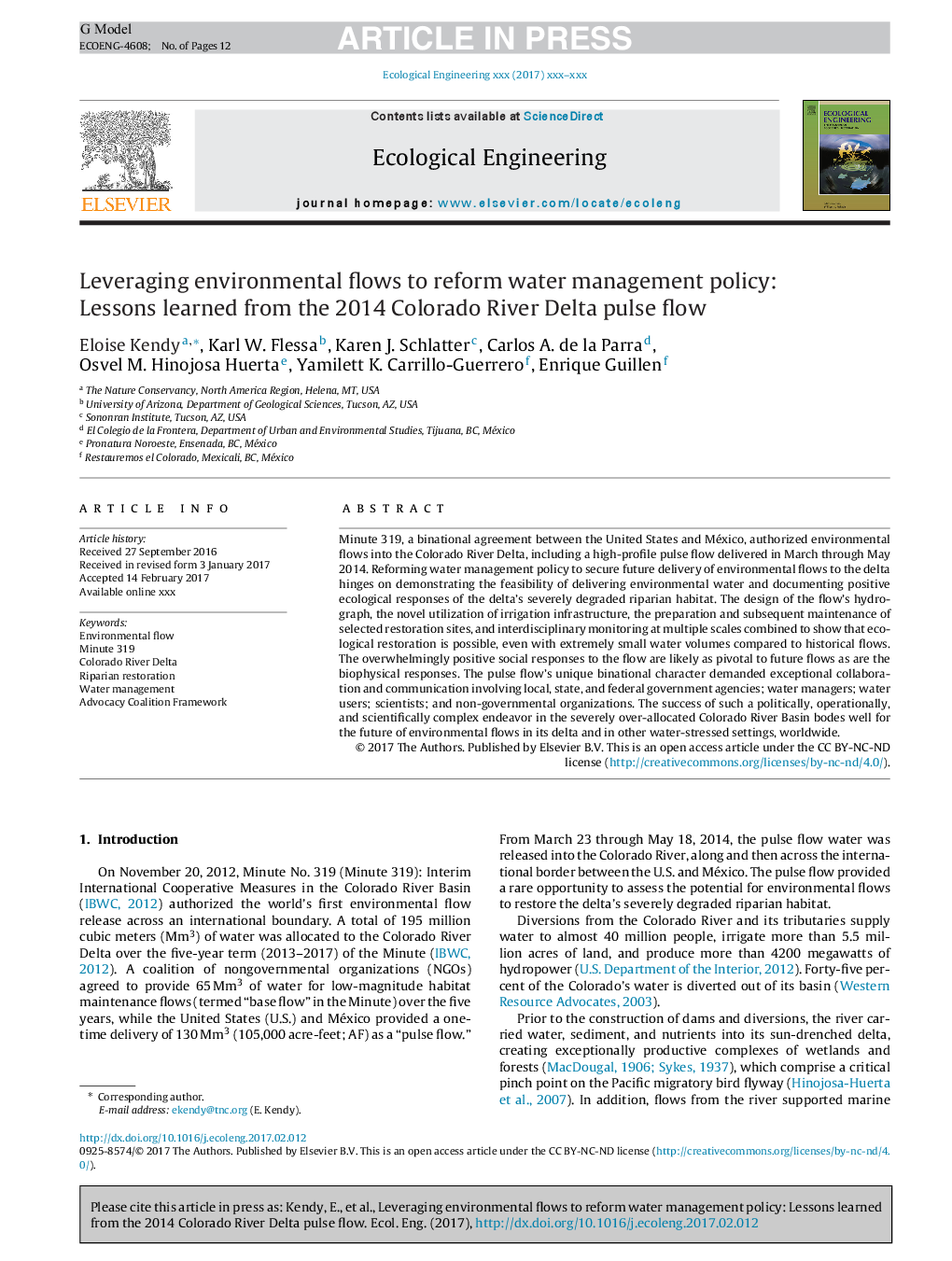ترجمه فارسی عنوان مقاله
استفاده از جریان های زیست محیطی برای اصلاح سیاست های مدیریت آب: درس های آموخته شده از جریان پالس دلتای رودخانه کلرادو 2014
عنوان انگلیسی
Leveraging environmental flows to reform water management policy: Lessons learned from the 2014 Colorado River Delta pulse flow
| کد مقاله | سال انتشار | تعداد صفحات مقاله انگلیسی |
|---|---|---|
| 96138 | 2017 | 12 صفحه PDF |
منبع

Publisher : Elsevier - Science Direct (الزویر - ساینس دایرکت)
Journal : Ecological Engineering, Volume 106, Part B, September 2017, Pages 683-694
ترجمه کلمات کلیدی
جریان محیطی، دقیقه 319، دلتا رودخانه کلرادو، ترمیم شیرینی پزی، مدیریت آب، چارچوب ائتلاف طرفداران،
کلمات کلیدی انگلیسی
Environmental flow; Minute 319; Colorado River Delta; Riparian restoration; Water management; Advocacy Coalition Framework;

